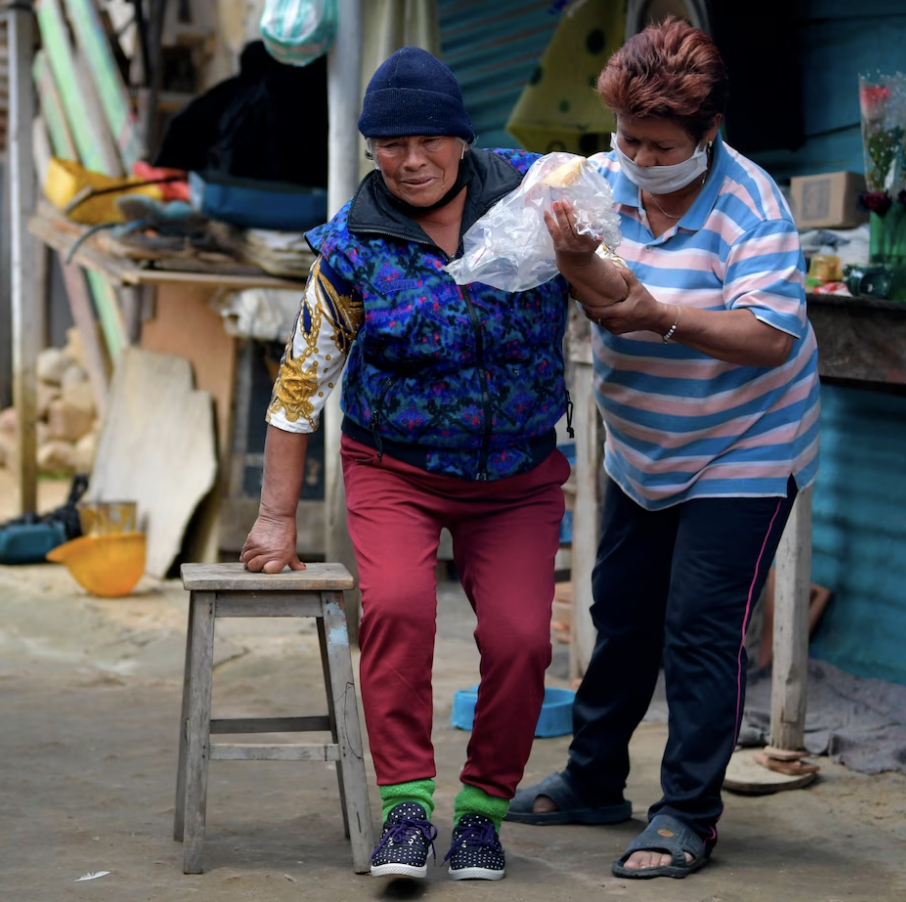When Paola Perez shifts into gear and puts her foot down on the accelerator, the lime-green bus zips forward with an almost-silent whoooosh. Neat rows of dozens of identical vehicles are visible on either side through its large rectangular windshield.
“This is a very beautiful place to work,” says Perez, as she steers the bus through the pleasingly symmetrical universe of white lines, smooth gray asphalt and angular metal platforms that house nearly 200 electric charging stations. “It’s new, it’s clean and it all works.”
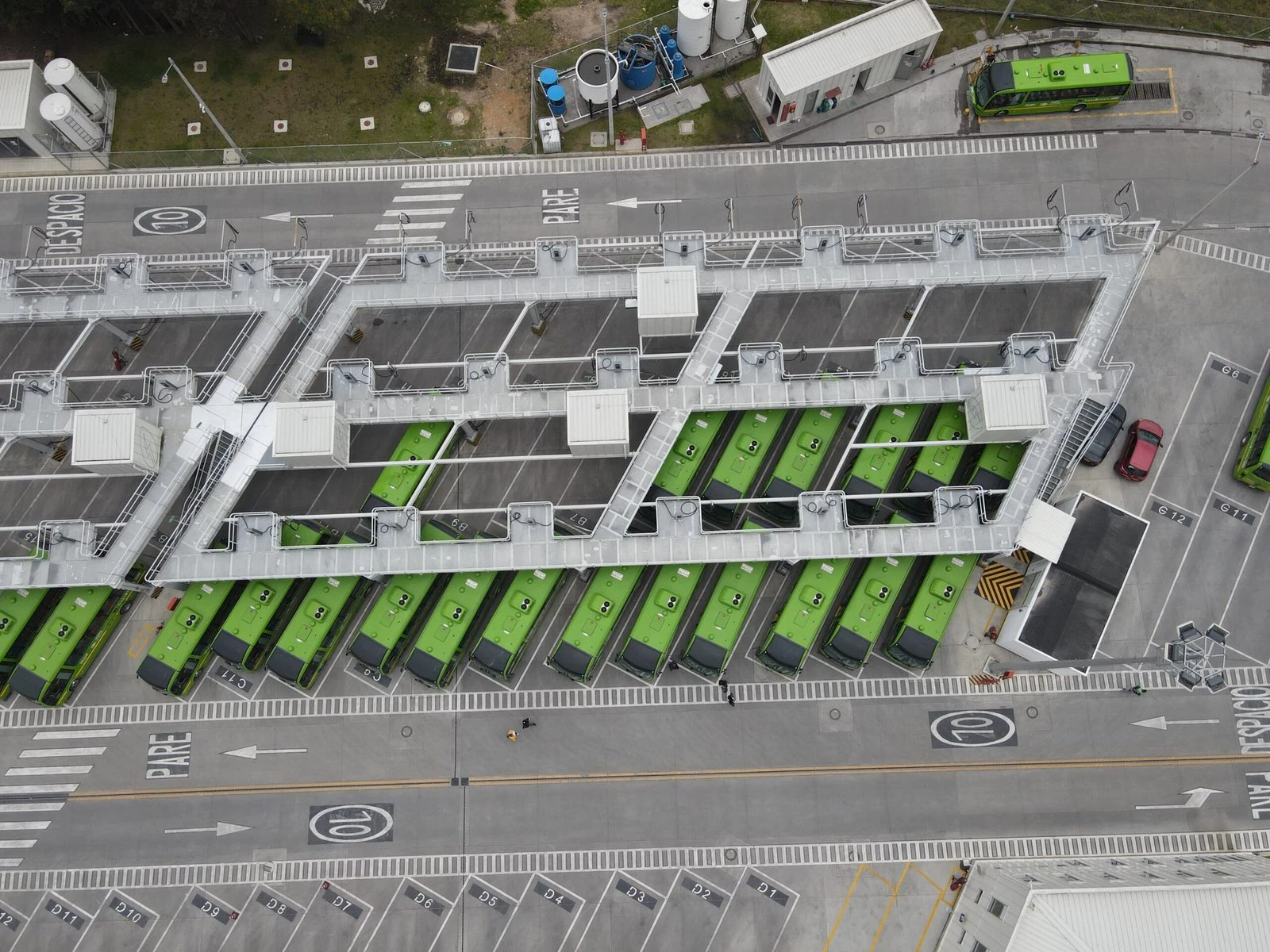
This impressive space in the southwest of Colombia’s capital, Bogotá, which opened in September 2022, is the headquarters of a project taking a rare gendered approach to urban mobility. Nicknamed La Rolita — a diminutive of the word for a person from Bogotá, un rolo or una rola — it is a public transit operator largely driven by women.
“It feels like a sorority,” says Perez, 37, who has been a driver since the start. “There’s a camaraderie. We speak to each other and help each other whenever we can.”
By placing women at the heart of La Rolita, which employs about 300 female drivers and is led by a female director, city authorities are creating a more sustainable, safe, equal and just transport system in the sprawling metropolis of eight million people.
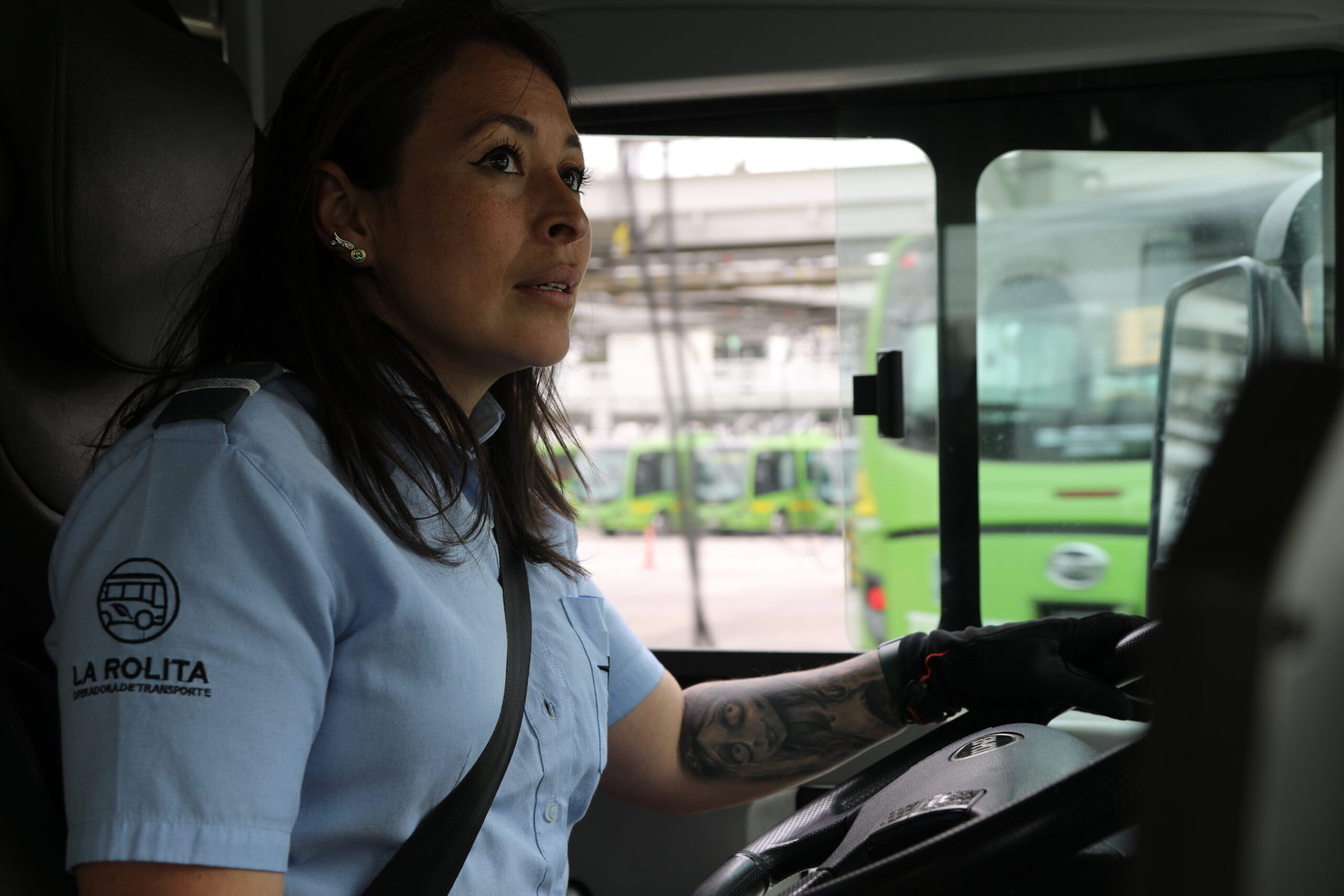
“This is a masculinized sector that we are working in,” says Carolina Martinez, the organization’s general manager. “But we are beginning to change that. There are many positive and important opportunities for us to benefit from in the long term.”
For one, according to Martinez, women bus drivers have fewer traffic accidents: La Rolita, which is the city’s only public bus operator, has the second-lowest number of injuries due to accidents — 72 in 18 months — when compared with the numerous private bus operators. (Other research backs this up: One study published in 2020 by Belgium’s road traffic institute Vias found that generally women drivers “take fewer risks behind the wheel than men” and “are less involved in serious accidents.”)
The presence of female drivers in public transit also helps female passengers to feel safer in the face of high levels of gender-based violence across the city, adds Martinez. A survey in 2020 found that 84.3 percent of women in Bogotá have experienced sexual harassment while using public transit.
It certainly helps that Bogotá’s trailblazing former mayor Claudia López, who reached her term limit at the end of 2023, launched La Rolita as part of a slew of measures tackling gender inequality in the city.
“This is symbolic,” adds Martinez. “It’s sending a message to society.”
La Rolita is also leading the way when it comes to making the workplace culture more equal.
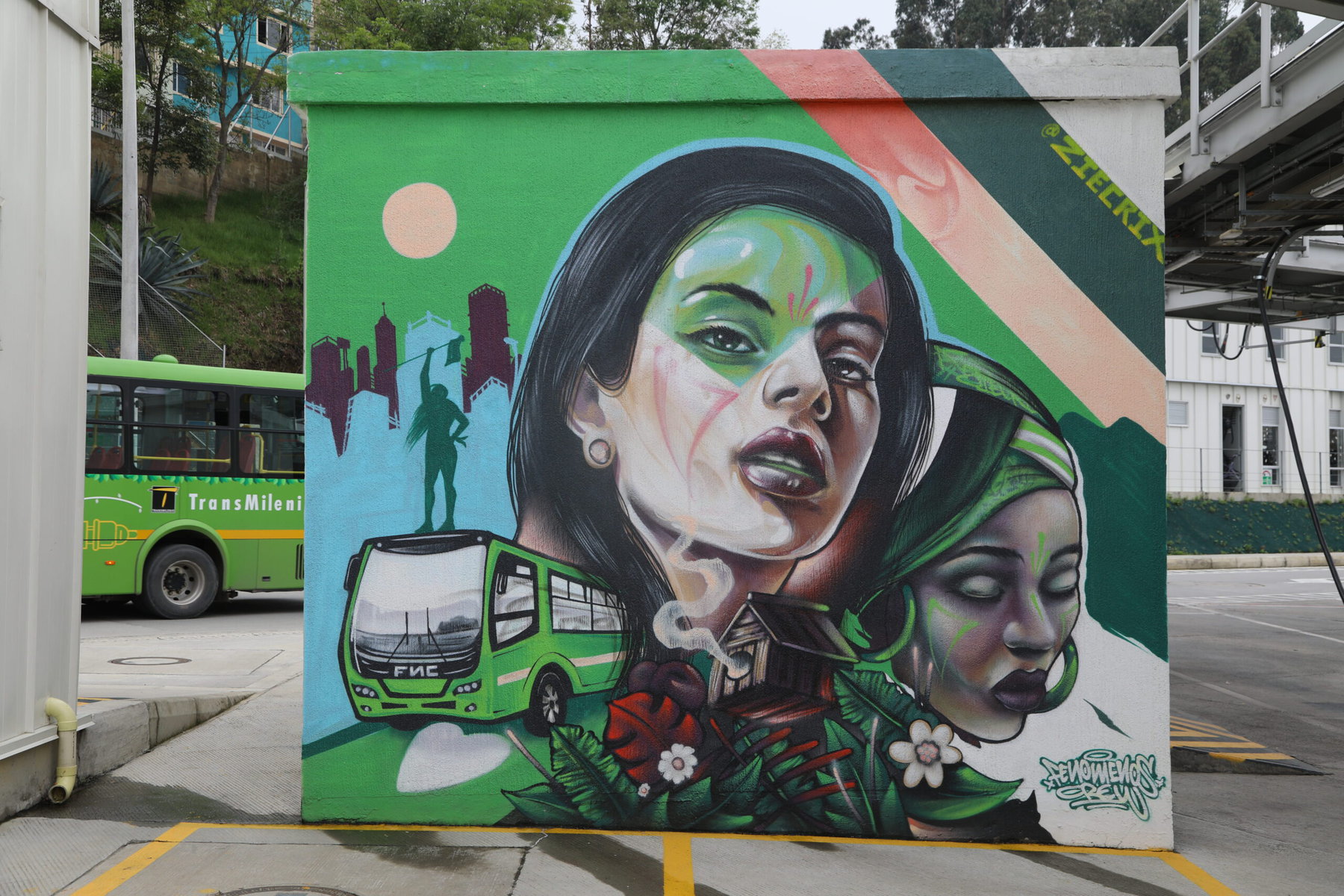
Riding against the gender pay gap, the company pays drivers 1.7 million pesos ($434) per month — compared to the national minimum wage of 1.16 million pesos ($296). The drivers are also given access to social security, including a pension.
More than 100 of the drivers have been given flexible working hours because they are heads of families, caregivers of children with disabilities and elderly people, or are pursuing higher education studies.
La Rolita’s gendered focus represents part of a wider progressive shift forward in the city’s mobility and transit network — spanning social justice and climate action.
Bogotá’s climate action plan, which seeks to cut the city’s emissions by 50 percent by 2030 and to reach carbon neutrality by 2050, aims for half of Bogotá’s buses to be electric by 2030 and the entire fleet to be so by 2050.
La Rolita’s 195 buses are 100 percent electric, and have taken the city’s total number of electric buses to 1,485 – out of around 10,000 buses in the city. It currently has the second-largest fleet of electric buses outside of China, after recently being overtaken by Chile’s capital, Santiago.
Keisha Alena Mayuga, an expert in gender, inclusivity and sustainable mobility at the German Society for International Cooperation (GIZ), argues that as cities across the world look to meet their climate goals by modernizing mobility systems, they must seize the opportunity, as La Rolita has, to cater to the needs of women and minorities.
“The tendency is that we box out climate action from gender,” she says. “But if you want it to be sustainable, it must be sustainable for most people. You have to consider how you can make this system better, not just how to electrify it.”
Mayuga says that over the past decades, planning for public transit has failed to take marginalized people and minorities into account. “Usually it is planned for working with men with nine-to-five jobs,” she says. “But that ignores a huge part of the population.”
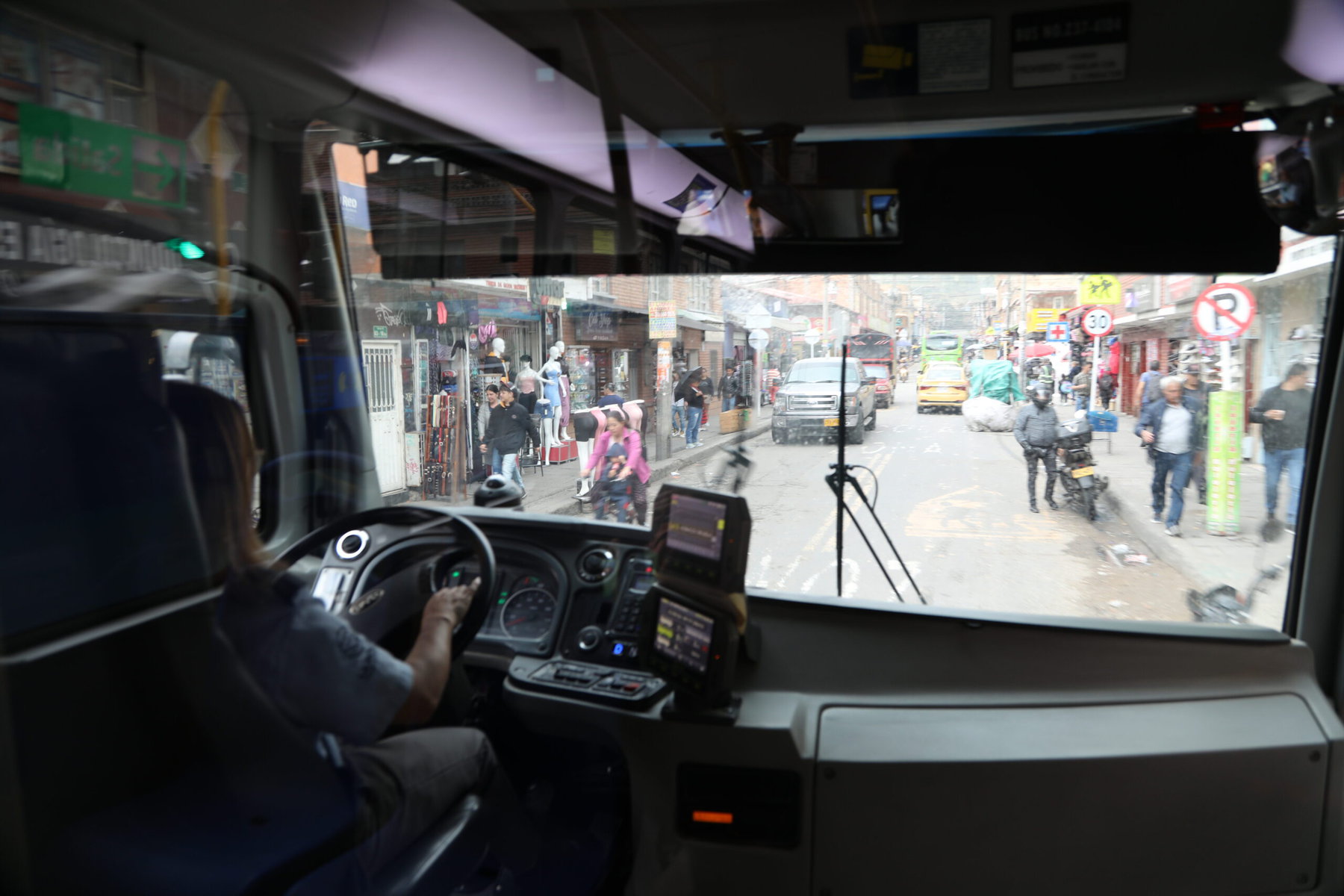
Fittingly, another crucial aspect of La Rolita is the way it addresses the needs of low-income communities. The buses serve more than 50,000 users along 10 routes covering 210 miles mainly in the district of Ciudad Bolívar, a poorer, often steep and therefore hard-to-navigate southern district that private companies had decided was too difficult to serve.
Darío Hidalgo Guerrero, a mobility expert and professor at the Javeriana University in Bogotá, says that Ciudad Bolívar went without a formal public transit service for many years in part due to fare evasion and fears over the safety of passengers.
“The city abandoned public operation after difficulties in the 1990s,” he says. “Buses were late, vandalized, and they weren’t a good use of money. Now we are trying again after that experience.”
Weighed down by negative news?
Our smart, bright, weekly newsletter is the uplift you’ve been looking for.La Rolita’s efforts are clearly on the right track: It recorded a 91 percent satisfaction rating over its first year, according to a survey by the city’s transport service TransMilenio — compared with the overall 29.7 percent of those satisfied with the city’s other bus services. In 2023, La Rolita also made a profit of 8.1 billion Colombian pesos ($2 million), turning around a loss of 3.9 billion pesos in 2022.
“It’s still early,” says Hidalgo. “But there is a better acceptance of La Rolita’s services. The data shows women are better drivers than men, that there are fewer crashes and that maintenance of the buses is better. This is very positive.”
In turn, representatives from Mexico, Barcelona, Paris and Costa Rica have all come along to learn, according to Martinez.
In December 2023, the company expanded its operations by taking over the city’s cable car, TransMiCable, and a pilot test for electric school buses is currently underway. One day, they hope to expand it to some 500 routes across the city.
Yet there have been some bumps in the road for La Rolita, particularly when it comes to societal change and cultural beliefs.
The driver Perez says that in the past, sexist male passengers have told her to “go home” while she was working. Others recounted similar issues. “It’s complicated,” she says. “There can be a lack of empathy from passengers.”
Some of Bogotá’s private bus companies also launched a legal challenge against La Rolita in 2021, arguing the city failed to conduct a study proving the need for it. For now, the legal issues have subsided.
And although around 60 percent of the drivers on La Rolita’s fleet are women, which is far greater than the 2.8 percent citywide average across 16,000 public bus drivers, it is still short of the project’s hopes of near-full female employment.
“There’s a lack of female drivers for us to hire at the moment,” says Martinez. “But we believe in time this will be less of an issue.”
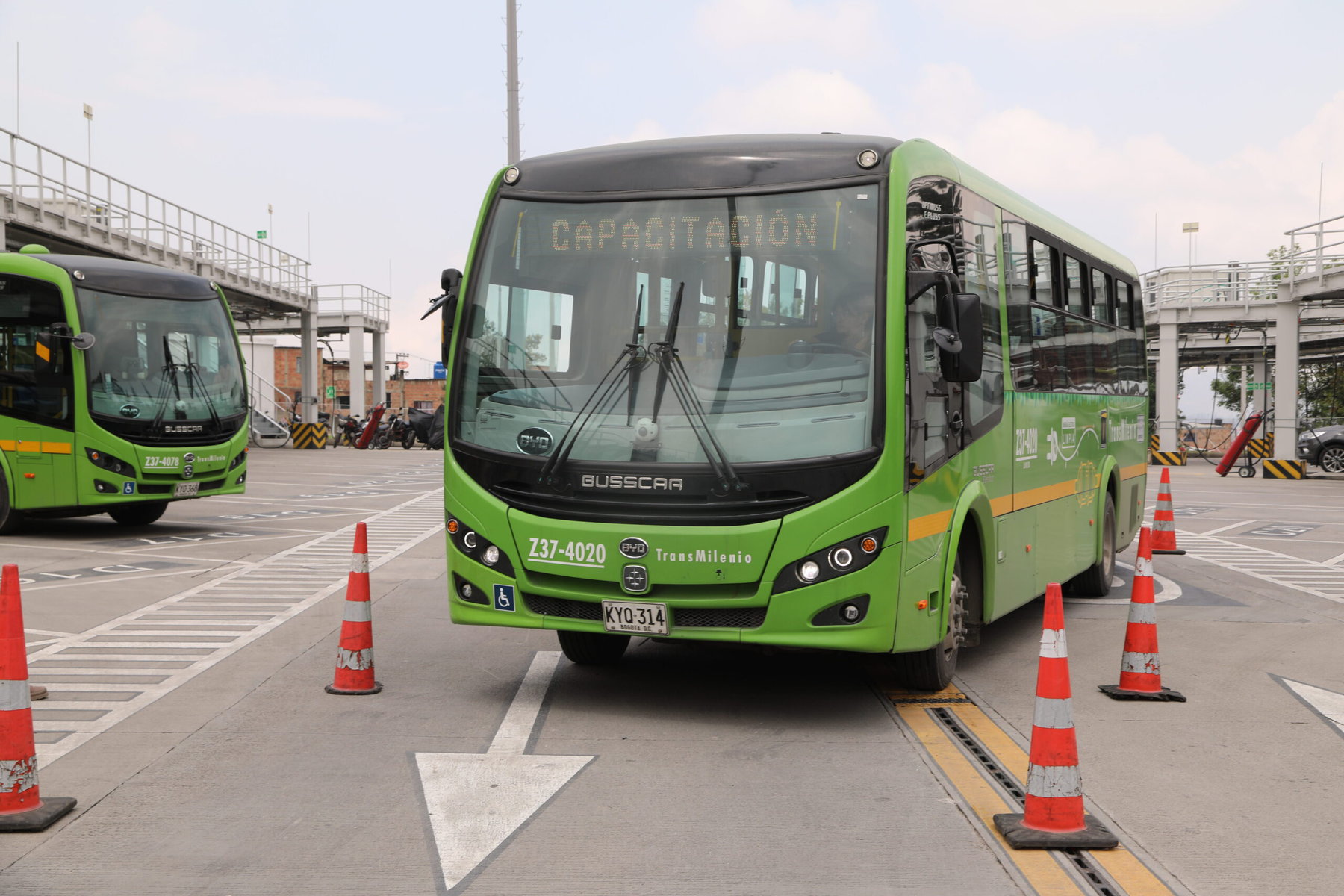
To boost those numbers, La Rolita provides two to three months of training for its drivers — many of whom are single mothers and some who previously couldn’t even drive. It also pays to train them and upgrade their driving licenses to use municipal electric vehicles through the Ministry of Mobility’s Eco Driving program.
So for now, La Rolita rolls onward in its effort to put women behind the wheel of public transit and to create a more equal city.
“It’s an immense opportunity,” says Alexandra Parrado, a 32-year-old who began driving for La Rolita one month ago after switching from a private company. “This is much more comfortable and organized. And it’s a case for equality. It’s a space for us to grow.”
All photos were taken by Peter Yeung.


